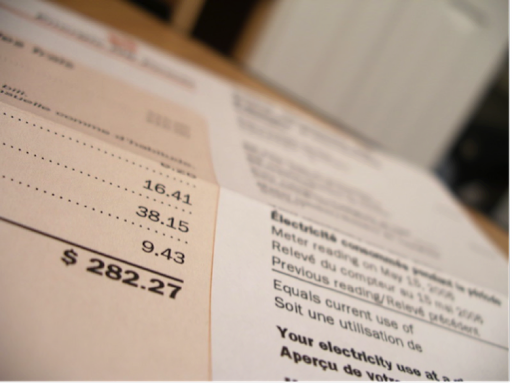The Citizens Utility Board (CUB) of Michigan is working to ensure that penalties on utilities for poor electric reliability are paid to Michigan residents who are most harmed by power outages and that utilities do not get rewarded for substandard performance as part of a proposed new regulatory construct.
CUB laid out its stances in comments recently submitted in response to a request from the Michigan Public Service Commission (MPSC) for comments on an MPSC staff proposal for a set of reliability metrics that would be tied to financial incentives and disincentives for utilities (MPSC Docket U-21400). This proposal represents a significant step toward “performance-based regulation,” a type of utility regulation that connects utility earnings to performance on achieving targets.
While CUB strongly supports a move to performance-based regulation, getting the details right is critical if these new rules are actually going to motivate utilities to improve service. In our comments, CUB points out how the staff proposal misses several elements that are necessary if performance-based regulation is to improve the lives of Michigan consumers.
First, to quote from the comments, “the proposal does not ensure that the beneficiaries of any penalties paid by the utilities are those affected by power outages. The disincentives should be paid to the customers that experience power outages in excess of targets.” We suggested that penalties could be quite simply paid to customers in the form of bill credits. For example, one of the proposed reliability metrics is the average time, nationally, for a utility to restore power after outages. For each instance that a customer experienced a restoration time in excess of that average, those customers could receive a bill credit.
Second, “the proposal potentially opens the door for utilities receiving rewards while their performance is still well below industry averages. Utilities should only be eligible for penalties, and not incentives, until they have improved their performance to be consistently above average compared to national benchmarks.”
Third, “utilities’ performance should not be measured relative to their own past performance, but rather relative to peer performance. Utilities should not be rewarded for marginal improvements on poor performance, and the way to avoid that result is to compare their performance to peers based on national benchmarks. While many of the metrics in the straw proposal are comparing utility performance to peers, there are some cases where it appears they may not.” To give more context, the MPSC staff’s proposal proposes both interim and long-term targets. The interim targets would be based on what was proposed by DTE and Consumers Energy in their 2021 and 2023 distribution system plans. Using the utilities’ proposed interim targets could be a problem. For example, Consumers Energy’s 2021 distribution system plan included “glidepaths,” where Consumers Energy’s improvement on a reliability metric is measured relative to a baseline of the utility’s past performance on that metric.
Fourth, “the straw proposal does not account for affordability and how, if not properly checked, a set of financial incentives/disincentives could make rates less affordable. Ratepayers are not just frustrated with poor reliability — they are frustrated with poor reliability despite the relatively high rates they pay for this service. The proposed incentives/disincentives may successfully push utilities to improve reliability, but they do not guarantee that the utilities would do so cost-effectively. Steps taken by the utility to improve reliability may increase customer rates significantly… Therefore, there need to be safeguards in place to ensure that improvements to reliability do not come at unnecessary cost to the consumer.” Those safeguards could come in the form of, say, a process where the MPSC must regularly measure the impact on rates from a proposed measure to improve reliability so we can compare the benefits of the measure to the costs that could be imposed onto ratepayers. It is possible that an incentive could be foregone for the sake of affordability.
Many other groups, including DTE, Consumers Energy, the Attorney General, Soulardarity and the Michigan Energy Innovation Business Council, have submitted comments on this topic. Read them in the docket for this case, and check back after Oct. 20 for reply comments from us and others.

